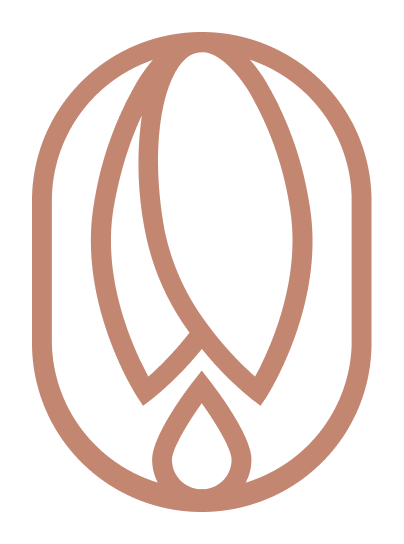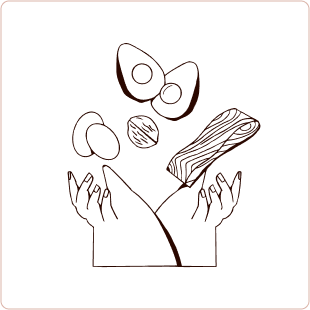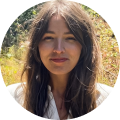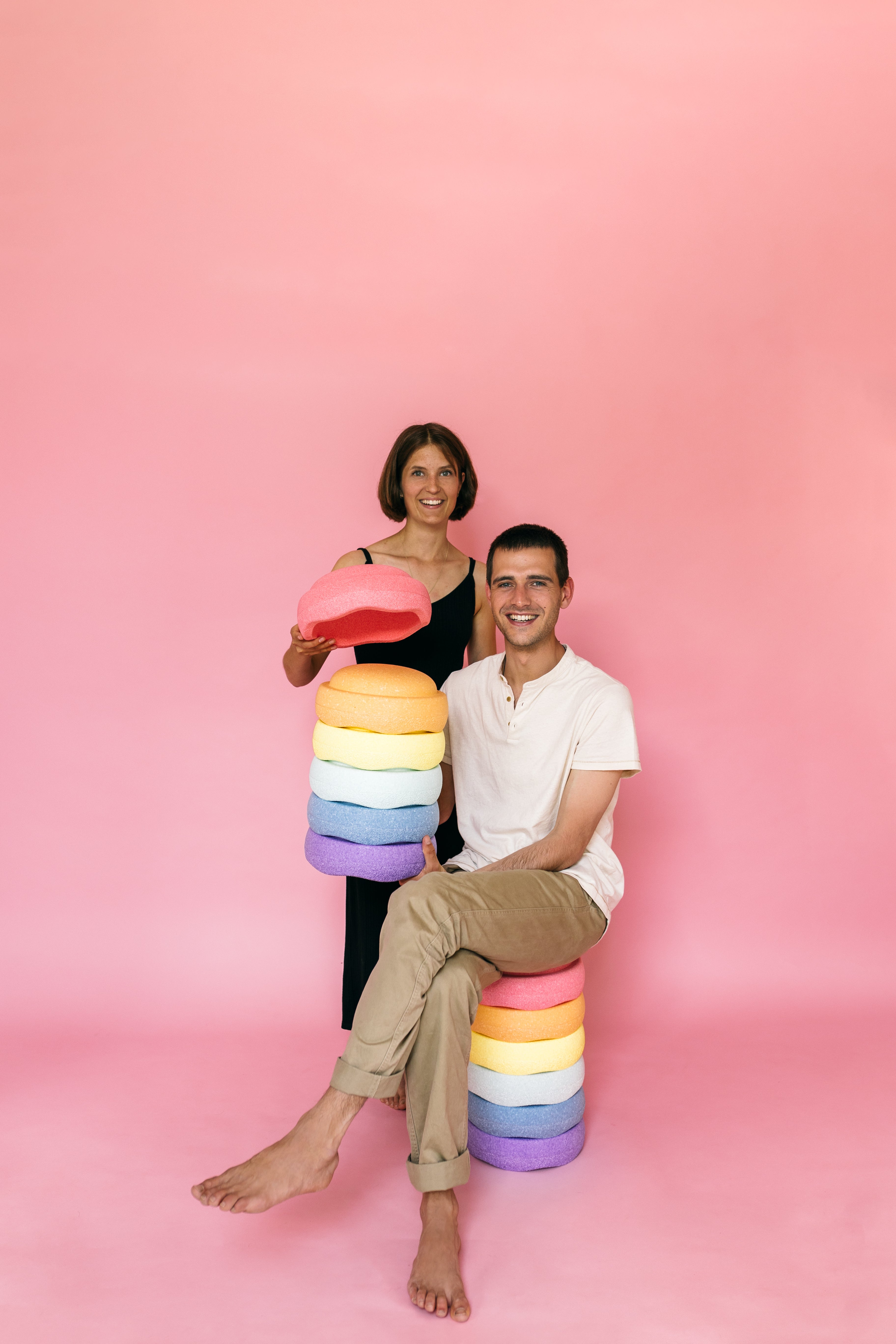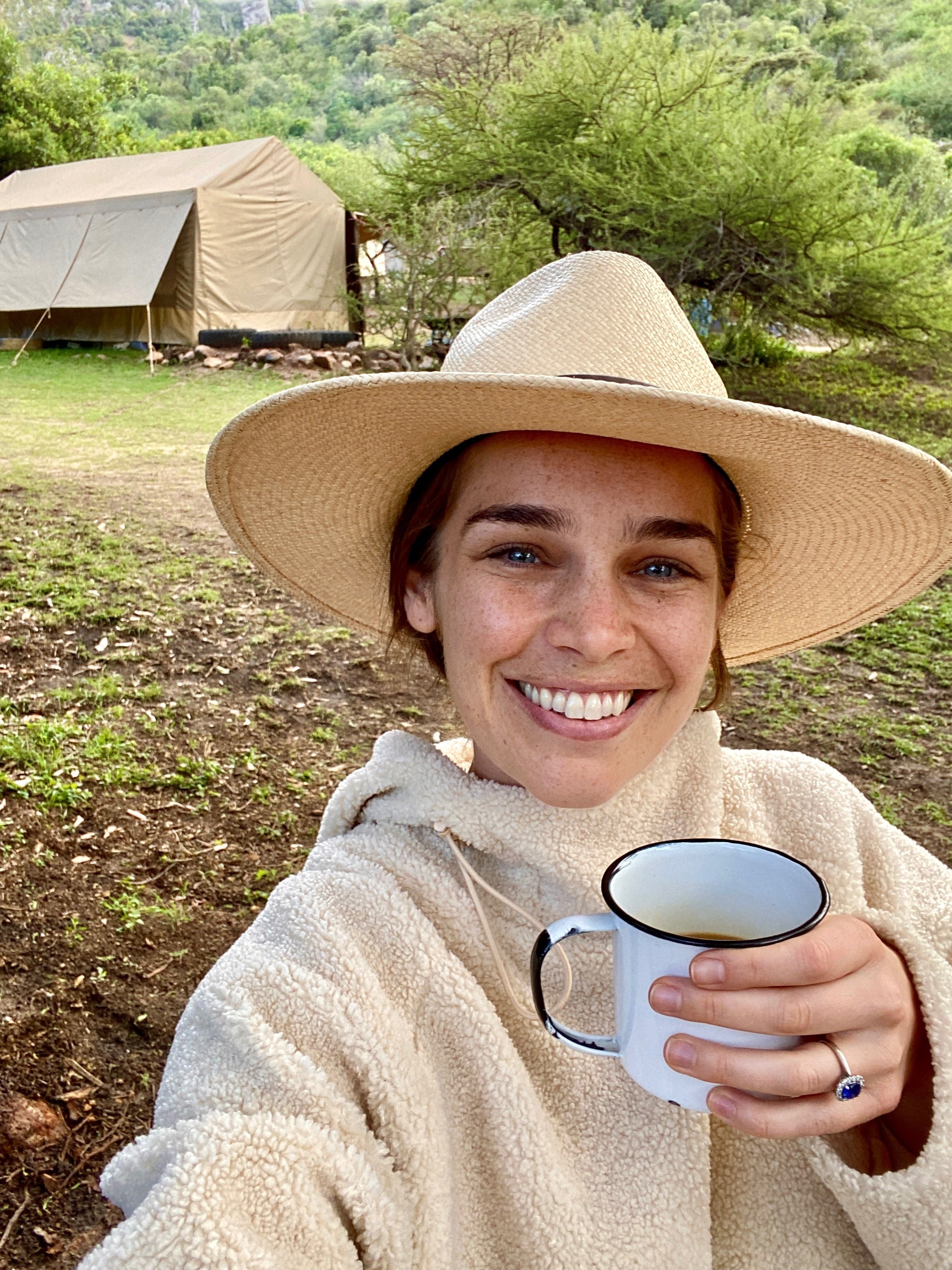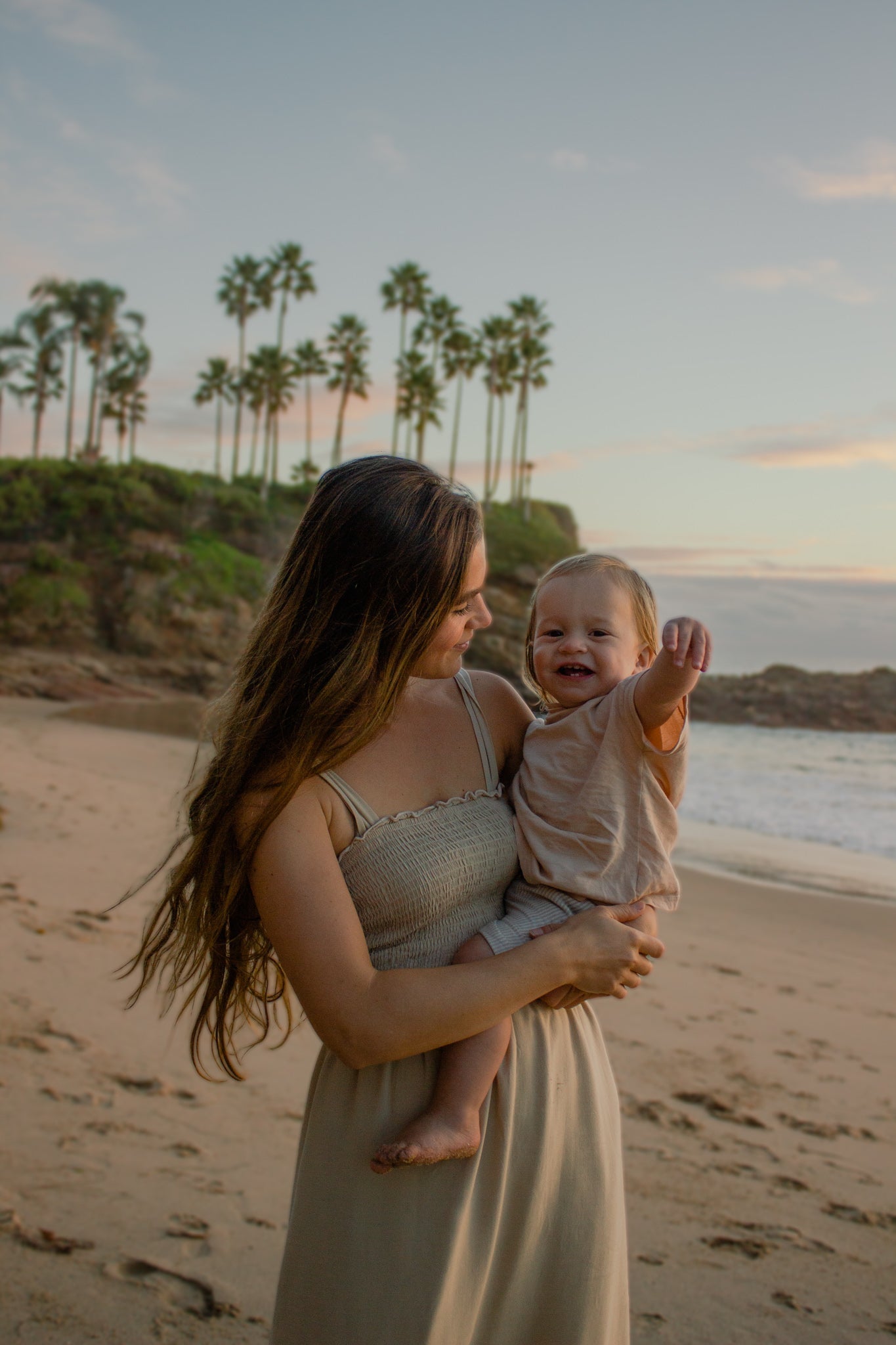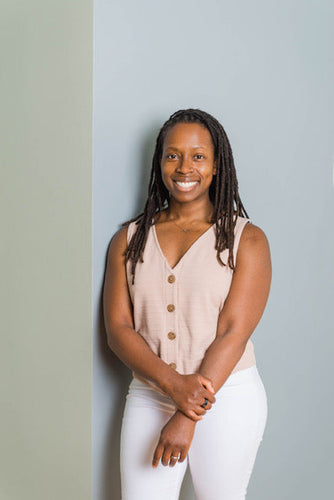Karni Arieli is a BAFTA nominated filmmaker and photographer and founder/curator of the EYE MAMA PROJECT. Started on Instagram during the pandemic, @eyemamaproject showcases “MAMA GAZE” - photography looking at mamahood by photographer mamas worldwide. It has been showcased in National Geographic, Vogue Italia, Creative Review, British Journal of Photography, Guardian, WSJ, and more. The Eye Mama book turned a year old in 2024 and has more than 200 images of care by photographers in a self portrait. It won awards at the Lovie Anthem and Webby Awards for social diversity and inclusion. And won first at the Lucie Photo Book Prize.
Karni is half of BAFTA nomimated directing duo - Karni and Saul, together they make casual fantasy/mixed media, music videos, commercials, and films. Their most recent film, Wild Summon, is Cannes Premier and BAFTA nominated.
Karni is a mother of two boys. Based in Bristol, UK.
Let’s start with some backstory. What led you to your career as a photographer and filmmaker?
Really, I think it was just my love of seeing things, of looking closely at things. My grandfather gave me an old camera, but I think I always just enjoyed visual pleasure and finding visually interesting things, even tiny things like light on a wall, the view from a window. Strangely, also, I've always had glasses, and I feel like the frames, the glasses, give you a view very reminiscent of a film frame or a photograph. And so in a way, you're always framing things when you look around. And I think I've just got a knack for a visual language. It's really my only talent, knowing when a visual is good. Making a visual, that's how I communicate best. I think language is second, and writing is much further down the line. It's just really about visuals for me, and visuals that move me - so not perfect things, but imperfections. And then, I just went to art school. I studied photography, and film evolved from there because I joined forces with my partner, who's an animator, and we started making little music videos. And I guess it's just living photographs, films, really. And they're all storytelling. That's the other thing, as well as visual pleasure. You're trying to tell a story. And I think it's really nice to tell a story in a more abstract sense, through visuals and through filmmaking, where everyone can see themselves in it and find themselves in it. The female gaze is very much on my agenda.

Megan Jacobs
Where did you find the inspiration for Eye Mama Project? What do you hope to achieve with this undertaking?
I was at home with my kids in lockdown, and I was just photographing them, trying to make sense of the new situation, and trying to just be playful with my kids and take photographs. And they took photographs too. And then I was also looking on social media and seeing all these women that I follow, photographers and filmmakers, mainly female, suddenly turning their lens introspectively into home and family, and very quickly, this feed was forming on my feed. In a way it was coming up automatically, nearly all these visuals by women and mothers looking introspectively into home and family. This was a fascinating vision to me, because it was very truthful and had a lot of dark and a lot of light. And I thought to myself, well, what if I collected this? And has anyone collected it before? So I did some research, and there's only really one other book that deals with the mother gaze in any form from 10 years ago. And it's barren. There's nothing that looks at motherhood by mothers. And definitely not motherhood photography. So I started collecting the images on Eye Mama Project on Instagram, you know, put a little hashtag, #eyemamaproject, and just got 10 friends to submit and tagged them, credited them, and that's where it started. And you know, very quickly, women were sharing it with other women. I think mothers were feeling very seen, including myself. And I think it helped us, supported us through this time, to feel more seen, to share more truths, to realize that motherhood was a duality that has a darker, tougher side, as well as beauty and connection and love. So all the imperfections were being shared, and that was very powerful.
And the achieving is exactly what I mentioned. It's connecting all these eyes and hearts worldwide. I call it a spider web of eyes and hearts, and really then it's making women feel seen. It's making the book that I was missing. It's making mothers feel more visible in the society that deems motherhood is either perfection or failure, and there's nothing in the middle. And I think sharing motherhood as a self portrait that has this duality is really powerful. We can't really empower the invisible, that's what I say. So we're doing the visibility so that we can empower it, so people can see it and feel empathy. Because this is all happening behind closed doors, and mothers are so lonely these days without the village and with social media. So I feel like peepholes into all these homes is something very much missing and very much needed, and visibility is my number one outcome from this - empowering mothers, making us all more empowered and just to feel better about this job that's called care, which can be really tough and very overlooked and unseen.
 Shindy Lestari
Shindy Lestari
As a mother of two, would you share with us a bit about your postpartum experience? What lessons did you learn? Where did you find support?
I live away from my family, and that was quite tough. So I raise my kids, I co- parent with my partner, Saul, who's also a co-directing partner, and that's not so simple sometimes.
I had both of them in pool. I gave birth in water, and I breastfed them both. I've got two boys. They're actually born eight years apart because I went back to work in the middle. And I'm an artist. It's not easy to have two kids without the village, without family. Financially. Mentally. And I really didn't sleep at all for probably two, three years with each of them. They were great kids when they were awake, but never slept. Or slept on us, which is very common, but I started tripping on the lack of sleep and just becoming slightly loony. That was really, really tough for me. And my partner helped a lot, but work is always tough to juggle in that mix and trying to shop for work as a freelance filmmaker, photographer, artist, and for my kids. It was not simple, and that's where Eye Mama sits, I think.
With my first, I had a herniated disc after a while, and I couldn't walk for a year. That was really, really tough. And I think just having this huge change of personality and physicality and not being acknowledged widely was tricky. I felt I was changing completely. And could smell things more. Could hear things more. I could hear a pin drop from like next door and babies from far away. We become really animalistic, which really ties into Nightbitch, which is out in the cinemas now. And I love that book. We actually have a quote from Rachel Yoder, the writer, in our Eye Mama book.
I think having kids, though, really teaches you to look for support more actively, to verbalize and try and connect more, to ask for help. And also they're a great mirror, you know, to show you your imperfections, and they teach you a lot about yourself. My boys are really probably my biggest achievement. And they of course drive you crazy, but they also are just your whole world at the same breath. So that's the incredible experience.

Lisha Zulkelpi
How has your transition into motherhood impacted the work you do?
Well, Eye Mama is how it impacted my work and also Wild Summon. I made an eco fantasy film with my partner that's BAFTA nominated, called Wild Summon, and it's the story of a salmon in the form of a woman, and she is a mother, too. And the salmon die where they give birth, they sacrifice their body to the river and give birth to a new generation. And in some ways, I see that really echoing in motherhood, how we give up our identities, often for the next generation, or have to fight for ours or a new one, and how society doesn't often support that.
So Eye Mama definitely sits on that junction of motherhood with work. That's why I got a lot of joy out of it, and satisfaction. Curating the images was really a huge joy for me, because I knew exactly what I was missing, what was unseen, that junction of dark and light, the undercurrent of fear and the beauty in imperfections and everything that is included in this journey of care.

Karolina Ćwik
As an artist, how do you encourage and nourish creativity in your children?
With both my kids, I usually stick a camera in their hands quite early and go on photographic walks with them, and often we sit and draw. We do a lot of drawing games. We do a lot of films as well. Now that there's lots of apps, we do stop frame films and edit little films on our laptops, create little shoots, but go out to nature a lot. I think nature is very inspiring. And the more I go out in it, the better I feel. And then if we go out with a camera, that's really magic. And then we'll collect some sticks, or if we go to a beach, I love collecting shells. And that mix of collecting natural elements and making things of them and photographing is really beautiful. And so easy to include your kids in, really. My eldest is a filmmaker and a drone operator, a DOP in his own right. He's 18 now. My youngest is 10, and he does a lot of drawing and character design and also some films. So I think they're heading into a sort of creative mindset. But who knows, it's also nice to just play imaginary games and be full of imagination and wonder and play. Of course, a lot of times, the artistic profession clashes with motherhood and parenting, because there's no set hours, there's no set money, there's no set anything. And Eye Mama is also unfunded and has been for three years, and that's really tricky right now. So I'm really looking for some sponsorship or collabs to try and float the Mama Gaze, as we call it now, motherhood by mother photographers, because increasingly it gets harder and harder to run this huge platform. It's got 25,000 followers, mostly women, and we have 70,000 images of care from 70 countries, 4,000 to the open call, and 228 in the Eye Mama book, which is available everywhere. So do get the Eye Mama book if you can. One of the things also that has been really lovely from this project, is the connections that I've had and friends I've made through Eye Mama to all these other mama artists around the world, and to see how similar we are. How different our storytelling is but similar our stories are, in a way. It's very grounding, and it points a lot at humanity. They like to say that motherhood isn't for mothers, it's for humanity, because we're all children. So it should be a humanity issue.

Jamie Diamond
What are you feeling inspired by lately?
I think the usual. I always love light, the way that light falls on walls, end of day light. I love shells and the beach. I adore nature. I love going to Iceland. I've been a few times. It's one of the places we've shot our film. And I really love quite extreme but quite small places that make you feel close to nature. And obviously my kids inspire me, and we live in Bristol, UK, and it's surrounded by a lot of great nature, but it's also got some great art and cinema. And it's always nice to see a great art show or look at a great book and be inspired, whether it's photography or art or illustration. I think kids books can also be really inspiring. And also the Eye Mamas themselves - looking through the work, curating, it always inspires me. So when I lose hope or give up for a day or two or don't know how to continue the project, the work always gives me power and makes me go back to the project and feel empowered again. So that's been a real gift.

Mia Davies
Eye Mama Project / Book
https://www.eyemamaproject.com
https://www.theguardian.com/
Wild Summon
https://www.theguardian.com/
More of Karni’s Work
